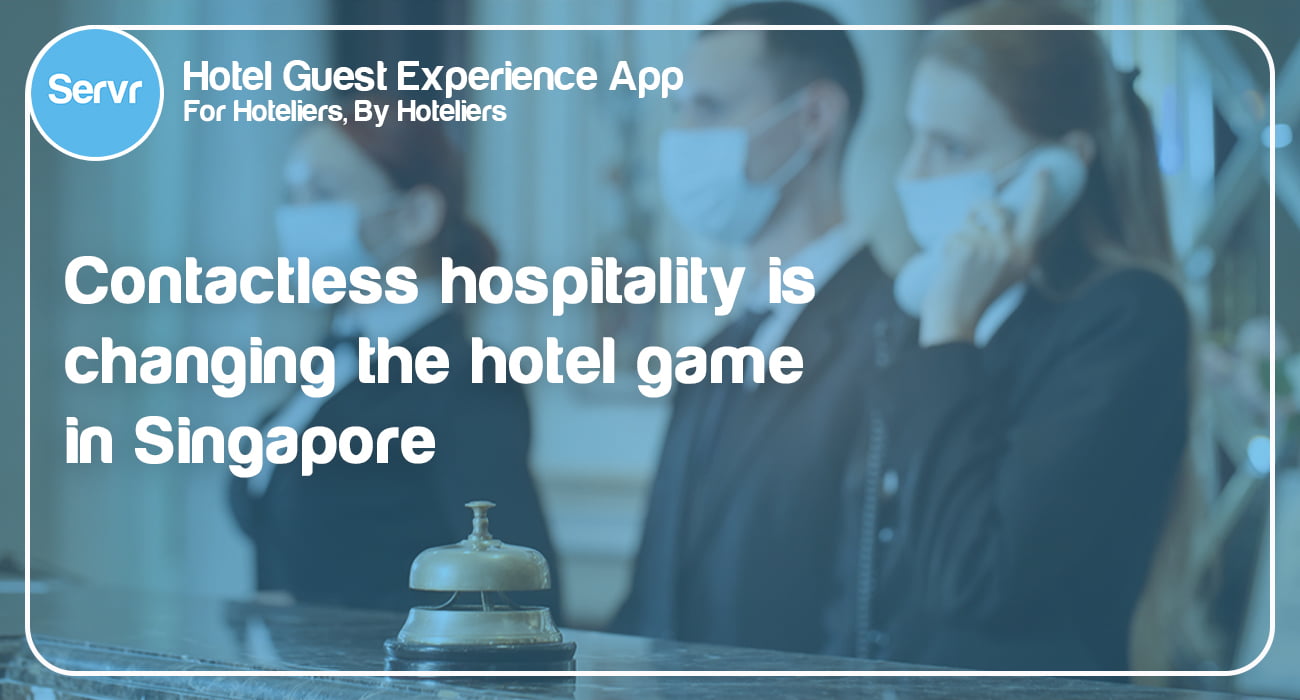
Since the COVID-19 pandemic brought us face to face with increased contamination risks, contactless technology has become a hot topic. The hospitality industry had to adapt to the changing reality and embrace contactless technology.
The COVID-19 pandemic has had a devastating effect on Singapore’s tourism sector over the past two years.
Room occupancy rates and revenue have remained at all-time lows in the hotel industry.
In September, the best month for Singapore’s hotel industry during the year, room revenue reached $75.9 million, as opposed to $375.9 million in September 2019. The revenue per available room was S$100, half that of 2019.
Events such as Singapore Grand Prix Formula 1 Night Race, which are held in September each year, were canceled.
Consequently, the adoption of new-generation technology has accelerated, and contactless hospitality is now the norm. Currently, HORECA companies are utilizing contactless solutions to ensure a safe and contamination-free guest experience.
On this blog, we will discuss the specifics of contactless hospitality as well as examine some of the most notable examples of digitized hospitality services. Continue reading to learn more!
Benefits of contactless guest experience
Contactless technologies are rapidly becoming popular in the hospitality industry. How does a contactless guest experience benefit hotels and companies, and how does it improve hotel services?
Let’s take a look at how technology is changing the hotel industry.
- Safety
Global travelers can enjoy their experiences with less pandemic-related anxiety thanks to contactless hospitality services. Contamination risks are considerably reduced when all interactions are conducted through an app or voice solution that offers a hands-free experience.
The most important thing is that increased safety doesn’t affect the quality of services. A hotel employee, on the other hand, is less likely to contract a virus from a hotel visitor.
- Reduced stress
Communication with hotel personnel is tedious and stressful to many people, which is why contactless hospitality is especially attractive. Miscommunications caused by language and cultural differences can be frustrating for many customers.
Contactless solutions liberate customers from the stress of human contact and allow them to enjoy a hassle-free guest experience.
- Automated workflow
Besides being safer from a health perspective, contactless tech solutions also eliminate human error when processing documents, credit card details, registrations, etc. Automation helps streamline and automate routine tasks that would otherwise require multiple employees to perform.
- Integrated analytics
With the help of contactless digital solutions, companies can also get access to insights and analytics. During every step of the customer’s stay, digital tools collect data related to the client – from booking accommodations to leaving feedback.
- Personalized services
Hoteliers can cater to visitors’ individual tastes using contactless hospitality solutions, which operate based on their personal information. The personalization of services has become a major selling point in a post-industrial society. It helps take the customer experience to an entirely new level.
- Competitive advantage
Companies that implement contactless hotel technology will be at the forefront of the hospitality digitization, giving them a distinct competitive advantage.
Final Thoughts
A survey conducted by Criton in 2020 found that most customers prefer a digitized experience over traditional hotel services. Sixty-two percent of people who took the survey said they would prefer a digital check-in, 80 percent said they would use an app to handle all aspects of their stay, and 47 percent said they would request room services more eagerly if they could use contactless technology.
The number of young travelers and travelers affected by pandemic anxiety is on the rise, and its early adopters will surely gain a competitive edge.
In addition to the negative impact of COVID-19, a number of companies had to rethink their business concepts and adopt new technologies. In a post-pandemic world, contactless hospitality will be the norm, and early adopters will have an advantage.
As a result, hospitality companies must make extensive adjustments to be able to implement contactless technology: personnel training, adopting new security measures, and even changing the entire structure of an organization are required.




